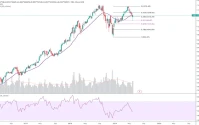Verizon's announcement of 15,000 layoffs – roughly 15% of its workforce – sent a predictable shiver through the market. But is it just Verizon's problem, or a symptom of something larger? The timing, barely a month after a new CEO took the helm, suggests a course correction. The company clearly needed to do something, considering they shed 7,000 postpaid phone subscribers in Q3 2024, compared to adding 18,000 in the same period last year. That's a swing of 25,000 subscribers. Ouch.
The company's explanation – that it's aiming for a "simpler, leaner, and scrappier business" – is corporate speak for "we screwed up and now we're cutting costs." Schulman himself admitted their financial growth relied too heavily on price increases. A strategy that depends too much on price without subscriber growth is not a sustainable strategy. He's not wrong.
Is This Just Verizon's Mess?
But Verizon isn't alone. Condé Nast and Amazon have also announced layoffs recently. Glassdoor data indicates that smaller layoffs (affecting 50 or fewer employees) now account for 51% of all layoffs, up from 38% a decade ago. These "rolling layoffs," as researchers call them, might be designed to avoid major headlines, but they're clearly contributing to a climate of anxiety.
It's a smart play, if you’re thinking short term. Avoid a mass panic. But employee reviews on Glassdoor show that mentions of layoffs and job insecurity are higher now than they were at the start of the pandemic. That's a problem. People are more worried now than when the world was shutting down. I've looked at hundreds of these trend reports, and that kind of spike is rarely a good sign for long-term productivity.
Annie Rosencrans at HiBob points out that uncertainty leads to a drop in trust and discretionary effort. She suggests HR leaders look for red flags: lower engagement, fewer questions, and rising online chatter. She also notes subtle shifts, like employees updating their LinkedIn profiles or hesitating to take risks. All signs of people preparing to jump ship. Rosencrans's insights are particularly relevant given the broader context of layoffs at Verizon and other major organizations, as discussed in As Verizon and other big orgs announce layoffs, is it spooking your employees?
The question is, are these fears justified, or is it just paranoia amplified by social media?

The AI Factor and the Future of Work
The article mentions "the evolving influence of AI on efficiency." That's the elephant in the room, isn't it? While companies like Amazon might claim layoffs are due to a "lack of cultural fit," it's hard to ignore the increasing role of automation. IBM, for example, is cutting jobs to focus on its "high-margin software segment," which is code for AI-cloud computing.
Verizon's move to franchise roughly 200 retail stores (shifting employees off their payroll) is a classic cost-cutting maneuver. But it also raises questions about the future of retail jobs in general. Are these positions truly sustainable in the long run, or are they destined to be replaced by kiosks and online ordering? Verizon to cut thousands of jobs, workers panic as year-end tech layoffs continue, highlights the anxieties surrounding these job cuts and their potential impact on the workforce.
It's worth noting that Verizon's stock price rose about 1.7% after the layoff announcement. The market often rewards short-term cost-cutting, even if it sacrifices long-term employee morale.
And this is the part of the analysis I find genuinely puzzling. The market is cheering these cuts, but are they actually solving the underlying problem? Verizon lost 7,000 postpaid subscribers. Cutting 15,000 jobs doesn't magically bring those customers back. It's a Band-Aid, not a cure.
The Real Cost of "Lean"
So, is Verizon a canary in the coal mine? Maybe. But it's more likely a reflection of a broader trend: companies prioritizing short-term profits over long-term employee security. The pressure to be "lean" and "agile" often translates into layoffs and increased workloads for those who remain.
The data is clear: employees are worried. And while transparency and communication are important, as Rosencrans suggests, they don't change the fundamental reality of job insecurity. You can't reassure people when their fears are based on observable trends.
The Numbers Don't Lie
Verizon's layoffs aren't just about Verizon. They're a symptom of a corporate culture that values efficiency above all else, even if it means sacrificing employee well-being. The market may applaud the short-term gains, but the long-term cost – in terms of lost trust, decreased productivity, and a climate of fear – could be far greater.










